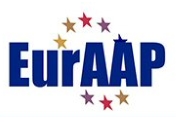Sixtainability: Paving the Way for a Sustainable 6G
Monday, 3 June 2024, 9:00-12:30, Room Galapagos
Organisers:
- Mir Ghoraishis (Gigasys Solutions, UK)
- Chiara Lombardoa (Univ. of Genoa, IT)
- Artur Hecker (Huawei Munich Research Centre, DE)
Motivation and Background
Recent events like the advent of modern mobile networking in the 90s or the smartphone revolution of 2006 have clearly demonstrated the potential to transform the economic and societal prospects of people and industries. Experts have divided sustainability into three primary pillars: social sustainability, economic sustainability, and environmental sustainability. Future mobile network (6G) is a crucial means to achieve sustainability goals in each of these pillars. In fact, in the ongoing vision-building and research toward next generation mobile networks, not only sustainability of the 6G systems is considered as one of the most crucial topics, but also the ways 6G can enable sustainability in other sectors of the industry and society is attracting attentions. Sustainability is attracting more attention in recent years due to the rare alignment of several factors:
- Political: sharp increase of awareness for “green” topics within the World; the neatly fitting political agenda in place (EU’s Green Deal).
- Commercial: the recently highly increased electricity prices; the carbon credit regulations in vigor or, generally, high pressure in this regard on the operators; the predicted role of ICT in the decarbonization of other sectors, likely to increase the 6G loads by magnitudes, compared to 5G and the need to compensate the rebound effects that can be expected.
- Technological: current or recently initiated work on such topics in the most relevant SDOs (e.g., on Energy Efficiency beyond the air interface in 3GPP); the existence of at least three running SNS JU projects dedicated to technological sustainability of future telecoms; new attention to the resource efficiency topic in the top academic research.
This workshop is proposed by SNS BeGREEN, SNS 6Green, and is co organized by SNS VERGE, SNS Exigence, HE Zero-SWARM, SNS Sustainability Task Force, and 6G-IA Vision Working Group. Their representatives in the event will be sharing their views, achievements, and lessons learnt from their respective projects. The holistic framework to assess sustainability impacts, and the methodologies to set the sustainability targets being worked out in the SNS Sustainability Task Force will be introduced, and the current state of the art fuelled by the insights from the SNS JU projects and with the recently started work in the 3GPP are being collected in the white paper under preparation in 6G-IA Vision Working Group. The collected insights from each of these activities will be presented in a dedicated session. In addition, the two distinguished keynote speakers from top industries in the sector will provide their first hand views on the issue. The expert panel discussion in the end of the day will provide further interaction and alignment on the issue, toward the conclusion and wrap up of the workshop. The organisers are committed to boost the dissemination of workshop conclusions and findings by bringing them into future activities that they organise on a regular basis.
Structure
- Welcome and Introduction to the Workshop (Mir Ghoraishi, Chiara Lombardo) [5 min]
- Session 1: [90 mins]
- Keynote Talk 1: “Towards Sustainable 6G Networks and Sustainability for Industry Applications “, Dr Xi Li (NEC Laboratories Europe) [20 min]
- “A Holistic Sustainability Impact Framework for SNS-JU Projects”, SNS Sustainability Task Force led by Ali Rezaki (Nokia) [45 min] Describing the common methodology being developed in the SNS-JU Sustainability Task Force, enabling the 6G research projects to handle sustainability topics in a holistic systems perspective, considering not only energy efficiency and savings but also circularity, biodiversity, geodiversity as well as socio-economic considerations, how sustainability targets are set, and sustainability impacts are assessed. The KVI process is practically used as part of this methodology. The framework also targets to coordinate the sustainability outcomes of different projects, so that they collectively deliver a 6G system with expected sustainability impacts.
- Presentation with Examples from SNS-JU projects, regarding the application of the sustainability framework will be demonstrated during the session (35 mins)
- Q&A (10 mins)
- “An Observability Framework to Expand Involvement in Sustainability” – Chiara Lombardo (University of Genoa) [6Green] [10 min]
- “BeGREEN: AI-Assisted Energy Aware Access Network Design” – Mir Ghoraishi (Gigasys Solutions) [BeGREEN] [10 min]
- “Sustainable AI for Trustworthiness and Energy-Proportional Radio Micro Orchestration” – David Lopez Bueno (CTTC) [Verge] [10 min]
- Coffee Break [10 min]
- Session 2: [90 mins]
- Keynote Talk 2: “Sustainability as a Key Criterion for Network Design on the Path to 6G”, Dr Volker Ziegler (Nokia) [20 min]
- “Beyond SBA for Sustainability” – Zhu Haopeng (Huawei) [Zero-Swarm] [15 min]
- “EXIGENCE: A Novel Approach for Energy Consumption and Carbon Footprint Reduction of ICT Services”, Ljupco Jorguseski, (TNO) [Exigence] [10 min]
- “Technical Aspects of Sustainability Considerations in 6G: White Paper”, 6GIA Vision Working Group, led by Artur Hecker (Huawei) [15 min]
- Panel Discussion [30 min]
- Volker Ziegler (Nokia)
- Xi Li (NEC Laboratories Europe)
- Artur Hecker (6GIA Vision WG, Huawei)
- Chiara Lombardo (CNIT, 6Green)
- Zhu Haopeng (Huawei)
- Fred Buining (HIRO Microdatacenters, Verge)
- Mir Ghoraishi [Moderator] (Gigasys Solutions, BeGREEN)













